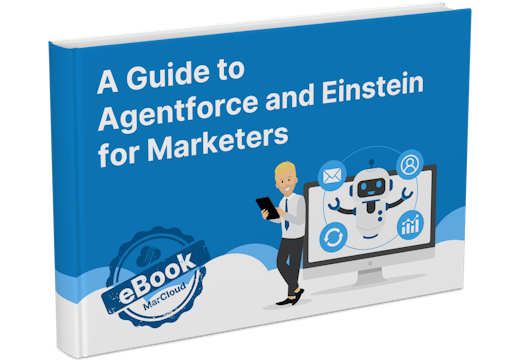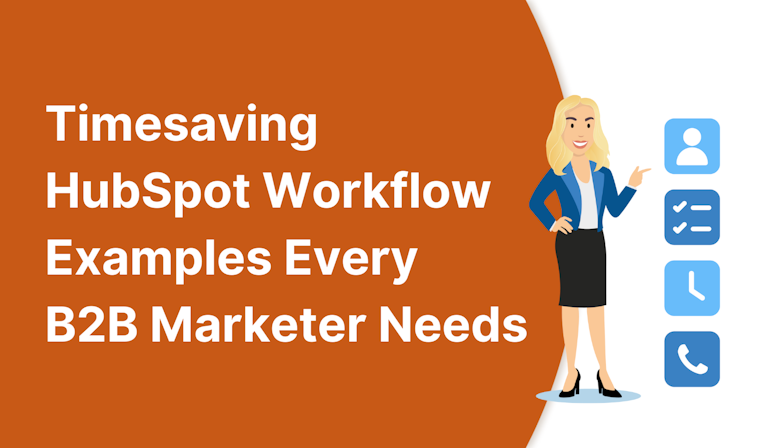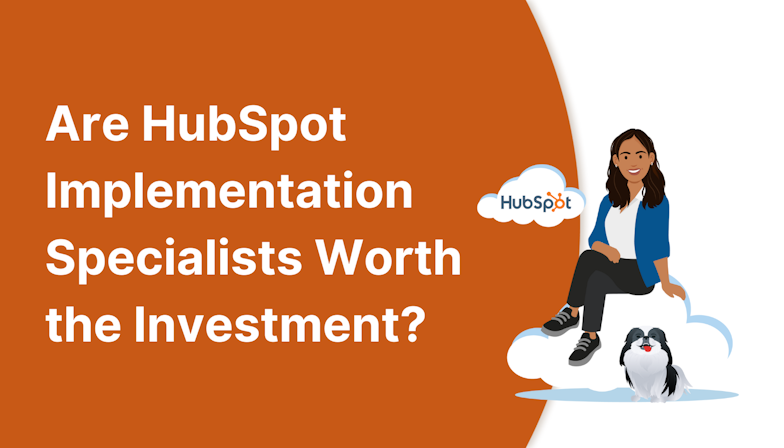With Einstein GPT embedded into Salesforce account features, it’s easier than ever to tap into the newest technology for boosting efficiency and sparking innovation. From hyper-personalisation, to enhanced customer insights, and improved campaign results, there are many reasons to get excited about Salesforce generative AI features.
However, marketing teams can be hesitant to adopt AI into their everyday operations, for a number of reasons related to data integrity, accuracy, damaging customer trust, and fear for their own jobs.
Unsurprisingly, Salesforce has addressed these concerns during the development of their generative AI solutions and, as experts in the platforms day in and day out, we can say with confidence that it’s time to embrace them.
Not going to take our word for it?
Fair enough. Let’s review each of the top concerns cited by marketers in the Salesforce State of Marketing Report (Ninth Edition) and precisely how Salesforce combats them.
Generative AI concerns for marketers
Poor data integrity
Without a doubt, data security is the top generative AI apprehension for marketers.
Typical concerns include the risk of data exposure or leakage and a lack of necessary data. This makes total sense, given generative AI systems depend on huge volumes of data for learning. The matter of sensitive customer data and the ethics of granting an intelligent machine access to a wealth of data shouldn’t be taken lightly.
How Salesforce tackles AI data concerns
Salesforce Einstein GPT addresses such data concerns through several key features and practices designed to ensure that data remains accurate, secure, and reliable. These are:
Data security and privacy: Salesforce Einstein GPT is built on Salesforce’s robust platform, which includes strong data security measures such as encryption, access controls, and compliance with global data protection regulations (like GDPR and CCPA). This ensures that sensitive data is protected against unauthorised access.
Data governance tools: Salesforce provides tools for data governance, such as auditing capabilities, which allow businesses to monitor data usage, track changes, and maintain data quality. These tools help ensure that the data used by Einstein GPT remains accurate and up-to-date.
Continuous learning and improvement: Einstein GPT is designed to continuously learn from new data while ensuring that this data is accurate and relevant. Salesforce provides features to clean, normalise, and validate data before it’s used for AI predictions, thereby maintaining data integrity.
Integration with Salesforce Data Cloud: Einstein GPT integrates seamlessly with Salesforce Data Cloud, which unifies data from multiple sources into a single view. This integration helps ensure that the AI is working with consistent and accurate data, reinforcing data integrity across the board.
2. Distrust in AI output
This concern is two-fold. Marketers worry that content created using generative AI could be inaccurate or biased, which in turn could damage their reputation and damage trust with customers. They also have concerns about copyright or intellectual property and how this could unknowingly land them in hot legal waters.
In general, there is still a distrust in artificial intelligence which is only natural given how new it is versus its incredibly sophisticated nature.
But there was a time people believed radio would render newspapers obsolete and not long after, that television would replace radio. If we can learn anything from history, it’s that even with early resistance, modern technologies will eventually be embraced.
Transparent Salesforce AI
Einstein GPT addresses marketers’ concerns about accuracy and copyright infringement through a combination of transparency, control, and adherence to best practices. They do this in a host of ways, including:
Explainable AI: Einstein GPT includes features that allow users to see how the AI reached a particular conclusion or recommendation. This transparency helps build trust by making the decision-making process understandable and traceable.
Model insights: Marketers can access insights into the data and algorithms used, helping them assess the validity of the output and ensuring that the AI’s suggestions are based on reliable information.
Customisable AI models: Marketers can fine-tune Einstein GPT models to align with their brand voice, guidelines, and specific needs. This allows them to have more control over the content generated, reducing concerns about inaccuracies.
Human oversight: Salesforce encourages human oversight in the content creation process. Marketers can review, edit, and approve AI-generated content before it is published, ensuring that it meets their standards and is accurate.
Adherence to copyright laws: Salesforce is committed to ethical AI practices, including respect for intellectual property. Einstein GPT is trained on public data and licensed content, and Salesforce ensures that the AI-generated outputs comply with copyright regulations.
Content originality: Einstein GPT is designed to generate original content rather than copying or infringing on existing works. Marketers can use built-in plagiarism detection tools to verify the originality of AI-generated content, reducing the risk of copyright infringement.
Ethical AI guidelines: Salesforce follows industry best practices and ethical guidelines in AI development and deployment. This includes ensuring that the content generated by Einstein GPT is fair, unbiased, and respectful of copyright laws.
Legal and compliance support: Salesforce provides support and resources to help marketers navigate legal and compliance issues related to AI-generated content, further reducing concerns about potential copyright infringement.
Not to mention the high standard of training resources available to Salesforce customers through the Trailhead modules, Trailblazer community, and direct customer support.
Download ‘A Guide to Salesforce Marketing GPT’ and learn how to use generative AI features for more efficient marketing.
3. Lack of AI strategy
With new technologies comes the need for new strategy, enabling marketers to properly plan how that technology will be used to better business processes and marketing results.
For some, the ‘need’ for AI isn’t hugely pressing, with marketers citing ‘lack of strategy or use cases’ as one of the top reasons they aren’t adopting AI right away. Again, this is a valid concern because strategy is essential to getting the most out of any tool or channel.
And again, Salesforce has the functionality to support marketers with planning and defining the best use cases for their unique business needs.
How Salesforce AI supports strategy
Through practical guidance, tailored solutions, and strategic support, Einstein GPT actually helps marketers develop and implement effective AI strategies. For example:
Predefined use cases: Einstein GPT offers a variety of predefined use cases tailored to common marketing scenarios, such as personalised email campaigns, social media content creation, customer segmentation, and product recommendations. These examples provide marketers with a clear starting point for using AI in their strategies.
Customisable templates: Marketers can access and modify AI-powered templates to fit their specific needs. These templates help streamline the process of implementing AI-driven campaigns, making it easier to see the strategic value.
AI-powered insights: Einstein GPT provides actionable insights and recommendations based on historical data, market trends, and customer behavior. This helps marketers identify strategic opportunities and make data-driven decisions, even if they initially lack a clear AI strategy.
Campaign optimisation: The platform offers suggestions for optimising campaigns, such as the best time to send emails, which audience segments to target, and which content resonates most with specific audiences. These recommendations assist marketers in crafting more effective strategies.
Trailhead learning paths: The Trailhead platform provides interactive learning modules that guide marketers through various AI use cases and strategies. This helps users understand how to apply AI in their specific context.
Plus, enlisting the support of a Salesforce Partner well versed in Salesforce AI features can help you develop customised strategies that align with your business goals.
4. Difficulty learning how to use the technology
Naturally, AI comes with a learning curve. Understanding how to input the best prompts and use AI tools to the best of your ability won’t happen overnight. For marketers though, upskilling in AI is a must-do if you want to stay relevant in the marketing space.
The demand for marketers with AI skills is rapidly increasing as AI becomes more integral to the marketing industry. The Coursera Global Skills Report 2024 found that 85% of employers now prioritise candidates with industry-recognised certifications, with a particular focus on those demonstrating proficiency in AI and data analytics.



![Coloured background with text How to Measure HubSpot ROI [Free eBook]](https://www.datocms-assets.com/103555/1763939582-hubspot-roi-ebook.png?auto=format&dpr=0.5&w=1568)
